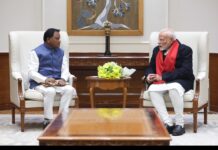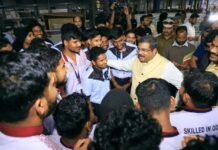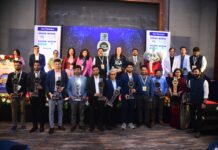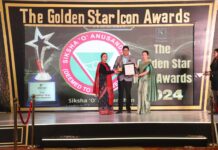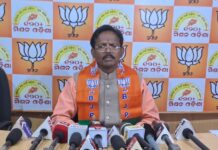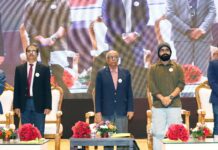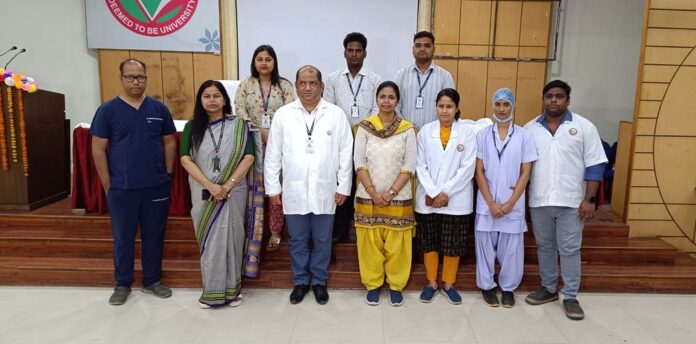By Our Correspondent
BHUBANESWAR: For the first time in Odisha, the Department of Clinical Hematology at the Institute of Medical Sciences and SUM Hospital here has successfully conducted a Haploidentical Hematopoietic Stem Cell Transplantation (HSCT) on a female patient suffering from Acute Myeloid Leukemia (AML).
The Haploidentical transplant is a type of allogeneic transplant in which healthy, blood forming cells are taken from a half-matched donor to replace the unhealthy ones in the patient, Dr. Priyanka Samal, Professor and Head of the department of Clinical Hematology, Hemato Oncology and Hematopoeitic Stem Cell Transplant in the hospital, said on Wednesday.
“The donor was the daughter of the 51-year-old patient whose Human Leukocyte Antigens (HLA) matched half of her mother. Th patient did display signs of complications after the transplantation but the same were managed aptly and aggressively,” she told newspersons adding it was the first successful Haplo transplant in the state which was done at a very reasonable cost.
Dr. Samal said she had undergone training on this particular transplant at the Princess Margaret Cancer Center in Toronto few months ago with the objective of reducing mortality and ensuring a better outcome. “This case presented an opportunity to attempt Haplo transplant which also was a learning curve for the entire team in the department,” she said.
“We have been praying that she should have a smooth road ahead because there are chances of having Graft-versus-host disease or GvHD, a systemic disorder which occurs when the graft’s immune cells recognize the host as foreign and attack the recipients body cells. But she has already crossed 45 days of the transplantation safely,” Dr. Samal said.
Transplantation related mortality is said to be around 30 per cent in such cases while the relapse rate was around 40 per cent. “Our prayer to the almighty is that the patient should recover completely,” she said.
Dr. Samal said: “We have been conducting fully matched sibling donor stem cell transplants but it’s difficult to find a healthy Matched Sibling Donor (MSD) for every patient eligible for HSCT. There is only 1 in 4 or 25 per cent chance of a patient matching with his or her sibling.”
“But Haploidentical HSCT provides almost 100 per cent possibility of getting a 50 per cent matched healthy donor for a patient,” she said.
The chances of graft rejection, GvHD, transplant and non-transplant related mortality are relatively higher in Haploidentical HSCT as compared to MSD HSCT, Dr. Samal said. “But with recent advancements and understanding, Haplo transplants are providing a hope for cure to patients without a MSD with manageable complications and better outcome,” she said.
Prof. (Dr.) Pusparaj Samantasinhar, Medical Superintendent of the hospital and Prof. (Dr.) Girija Nandini Kanungo, Head of Department of Transfusion Medicine and Dr. Santosh Kumar Singh, In-charge of Hemato ICU were present at the news conference.
Prof. (Dr.) Samantasinhar said Stem Cell Transplant required a multi-disciplinary approach involving a big team including the departments of Clinical Hematology, Transfusion Medicine and Lab Hematology. “This treatment was available in hospitals in big cities five to ten years ago involving huge cost and mental stress. The same treatment is now available in IMS and SUM Hospital at lower price,” he said.
He said that the hospital had already conducted around 50 Stem Cell Transplantations so far of which 70 per cent cases had been done under the Biju Swasthya Kalyan Yojana (BSKY).
Prof. (Dr.) Samal said the hospital had been conducting Autologous and Allogenic Stem Cell Transplantation earlier but it was the first time that it had undertaken a Haploidentical Hematopoeitic Stem Cell Transplantation successfully.
She said the need was for heightened awareness about stem cell donation which was just like blood donation. Such donation will go a long way in the treatment of critical patients suffering from AML and other blood related ailments. Stem cells of the donors get replenished within a week’s time, she said.


